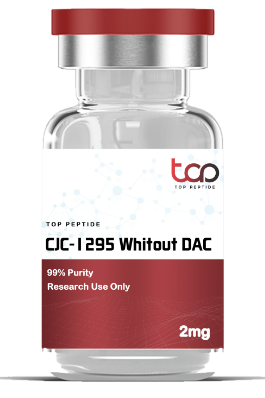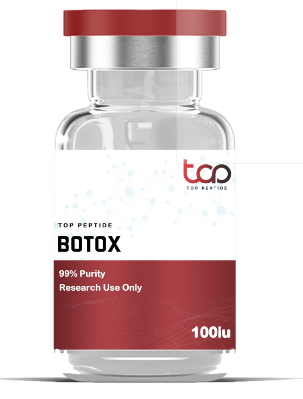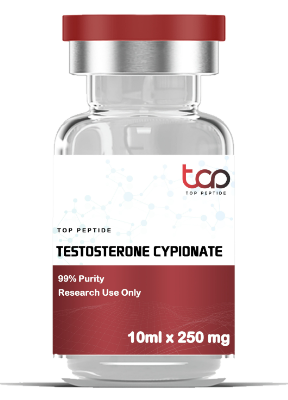Kisspeptin-10 is a peptide that is starting to receive notice in anti-aging and reproductive health research. It is now known that Kisspeptin-10 plays a vital part in the secretion of reproductive horomones. Consequently, it has become a subject of great interest for scientists involved in therapeutic strategies concerning reproduction and aging.
What exactly is Kisspeptin-10?
Kisspeptin-10 targets a vital aspect of reproductive hormones – libido and sexual motivation. Apart from regulating reproductive health in themselves, this peptide has shown an ability to alter testosterone level which makes it essential for research in male reproductive health. The new research identifies Kisspeptin-10 advantages in reproduction to improving sex related behaviors and other indicators of fertility.
As invasive growths are tumors require immense effort to eliminate, Kisspeptin was initially studied with the belief that it would assist in curtailing the creation of new blood vessels to aid in tumor shrinkage. With further investigation, it’s astonishing relevance in reproductive biology was uncovered. Researchers began narrowing their focus on Kisspeptin-10, a muscle-forming fragment of a parent peptide, due to its increased activity. This Peptide is known to trigger a receptor, GPR54, which is responsible for the priming of GnRH that is gonadotropin-releasing hormone. The stimulating action of this hormone leads to the secretion of LH and FSH, which are fundamental to reproductive biology and health.
Kisspeptin-10 and Reproductive Health
One of the most studied aspects Kisspeptin-10 is its influence on the regulatory functions of the body. Since Kisspeptin-10 acts on various hormones such as, luteinizing hormone (LH) and follicle-stimulating hormone (FSH), it can easily alter the reproductive system of the body. As a result, it has become important for scientists studying or attempting to treat problems with imbalance of hormones, infertility, and most other reproductive health issues. The range of Kisspeptin-10 dosage that is effective differs among research studies, but guidelines have been established to ensure that desired results will be achieved to the best extent possible.
For instance, researchers have shown that the introduction of Kisspeptin-10 can restore the levels of reproductive hormones in men and women suffering from hormonal imbalances. Such evidence points to a possible solution in treating hypothalamic functions, hypogonadism, polycystic ovary syndrome (PCOS), and other fertility-associated conditions.
Anti Aging Benefits of Kisspeptin-10
Apart from assisting in reproductive processes, Kisspeptin-10 has antiviral properties which are an important area of research in the field of biological sciences. Some research indicates that this peptide can ameliorate the aging phenotype, especially tissue senescence driven by menopause or andropause. Because of its potential to replace certain hormones that decrease with advancing age, Kisspeptin-10 may improve youthfulness and vigor while decelerating the aging process.
The process of aging comes with a decrease in the balance of hormones which subsequently leads to less energy, reduced libido, and other signs. Targeting the hormonal Kisspeptin-10 regulation pathways may assist in restoring some of the balance to reduce the impact. While research is groundbreaking at best, the prospect of using this peptide as an anti-aging strategy can significantly advancing science and the medical field.
Kisspeptin-10: Instructions for Use
For those looking to investigate the entire exercise that this peptide has to offer, Kisspeptin-10 use instructions must be grasped. Kisspeptin is administered through subcutaneous injections. Controlled environments are required for applying Kisspeptin-10 injections so that there is no discrepancy in research results. Accurate administration is vital in obtaining valid results when examining its effects in reproductive health and anti-aging medicine.
When measuring Kisspeptin-10 dosage, researchers should pay attention to the targeted areas of the research as the dosages prescribed may range widely depending on the aim of the experiment. While specific dosing protocols remain to be established, some research indicates that Kisspeptin-10 is generally well tolerated and only a few side effects have been reported. For these reasons, it is a great option for research studies that target its potential practical applications.
Kisspeptin-10 is a noble peptide for further research especially when it comes to the areas relating to hormone and reproductive health management as well as anti-aging. It is possible that with increased studies on Kisspeptin-10 dosage and administration, it can supplement advanced treatment methodologies and become a primary focus for researchers in these problems. The ability of Kisspeptin-10 to affect reproductive hormones and reverse some aging effects makes it a very appealing subject for researchers interested in advancing the field of peptide-based therapies. As the gaps in available data are filled, Kisspeptin-10 will become instrumental in creating conditions for new treatments focused on reproductive and aging problems.






 Home
Home
 Product
Product
 News
News
 Contact
Contact